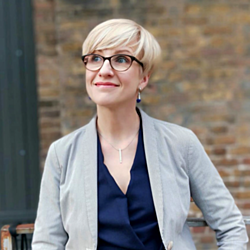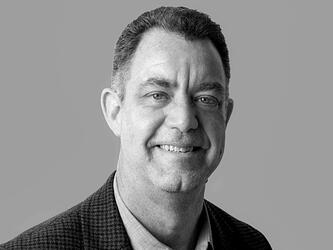Joanna Brassett – Research Hero
Joanna Brassett, Founder and CEO, Studio intO Ltd

Joanna is a specialist in combining design research with social science to turn cultural insights into innovation opportunities and business strategies.
Leading Studio IntO’s central team, Joanna orchestrates research projects with its 68 multilingual researchers who live in more than 50 established and emerging markets around the world.
Joanna has a BA (Hons) in product design from Central Saint Martins, and an MSc in culture and society from London School of Economics [sociology, anthropology and social psychology]. She has lived in Germany, Ireland and the UK, and is now based between the UK and Poland.
Joanna was nominated for her role launching and leading the Researchers in Residence Programme, which is providing work for displaced researchers from Ukraine. She “consistently demonstrates the value of empathy and kindness via her leadership”.
What is the biggest challenge you have faced during your career?
When I returned from maternity leave after having my first child. At that time, I was a senior researcher for a company that was design, innovation and research-focused and I was working in the foresight team delivering insights and strategy for 3D product development. The company was male dominated – about 80/20. I came back and experienced a huge amount of bias.
There was the assumption that, as a mother, I would not have the focus to work on important projects. I watched my male colleagues win promotions over me and I received very little support from the team or the businesses’ leadership. The work practices were very rigid; no remote or flexible working was possible and we were expected to put in extra hours on demand and with little notice. I felt that motherhood was making me more ambitious, efficient and productive – yet when I had to leave at 6pm to collect my child from nursery, I was perceived as not having enough work to do.
The whole situation was utterly toxic, knocked my confidence and created huge doubt about what would be possible for my career as a parent. However, this experience really focused me. It motivated me to design a business that would empower me – and the people I work alongside – to develop a research career alongside parenthood. This is a really key part of the culture at the agency I founded, Studio IntO, which respects everyone’s right to have the time and flexibility to enjoy and attend to family life. It works – and I’ve had three more children since to prove it. The landscape for working parents has changed a lot since my catalytic experience – but there’s still a long way to go.
What will be the next big trend or development in the research industry, and why?
As our life and society becomes more diverse, complex and globalised, it’s becoming increasingly important to understand research participants at a really individual level – and this is dependent on understanding the bigger context, too. When I say ‘bigger context’, this isn’t just about the immediate environment, but the global layers of complexity – cultural, social, political, economic, etc – that influence and shape diverse motivations and attitudes.
In the research industry, considering the global context can still feel quite overwhelming, it’s becoming more critical to look beyond dominant western frameworks and assumptions. The need for, and benefits of, diverse representation (cultural and otherwise) among research study participants is becoming better acknowledged – but we need to ensure we’re matching this with diversity across research teams.
Similarly, as business becomes more global than ever, boundaries that have been traditionally used to delineate regional markets will begin to fade. In my own practice, it’s becoming more common for global digital brands to commission region-agnostic studies that seek niche or progressive users no matter where they are in the world.
Who inspires you as a researcher?
I’d like to name two people: Professor Sandra Jovchelovitch and Dr Susie Orbach. The work of both is rooted in how psychoanalytic theory can be applied to enhance our understanding of contextual influences.
Jovchelovitch is a social and clinical psychologist by training and her research is focused on human development in the context of adversity, community development and the socio-cultural context of knowledge. She explores the relationship between knowledge and context with novel methodologies that investigate how individual and social processes of ‘representation’ tie knowledge to persons, communities and cultures. I really recommend her book, Knowledge in Context: Representations, Community and Culture.
Orbach is a psychoanalyst, psychotherapist and social critic, and is well known for her view that we need to take a gendered understanding of human development. I admire how she has applied her life’s work to the commercial sector; she famously co-originated the Dove Campaign for Real Beauty for Unilever.

We hope you enjoyed this article.
Research Live is published by MRS.
The Market Research Society (MRS) exists to promote and protect the research sector, showcasing how research delivers impact for businesses and government.
Members of MRS enjoy many benefits including tailoured policy guidance, discounts on training and conferences, and access to member-only content.
For example, there's an archive of winning case studies from over a decade of MRS Awards.
Find out more about the benefits of joining MRS here.













0 Comments